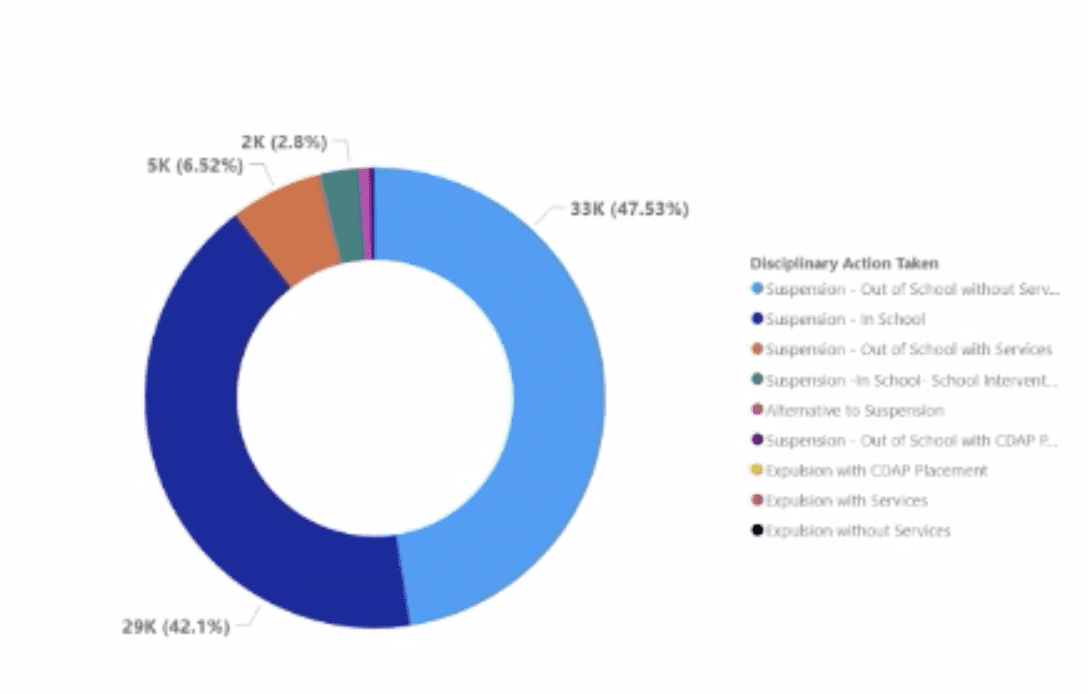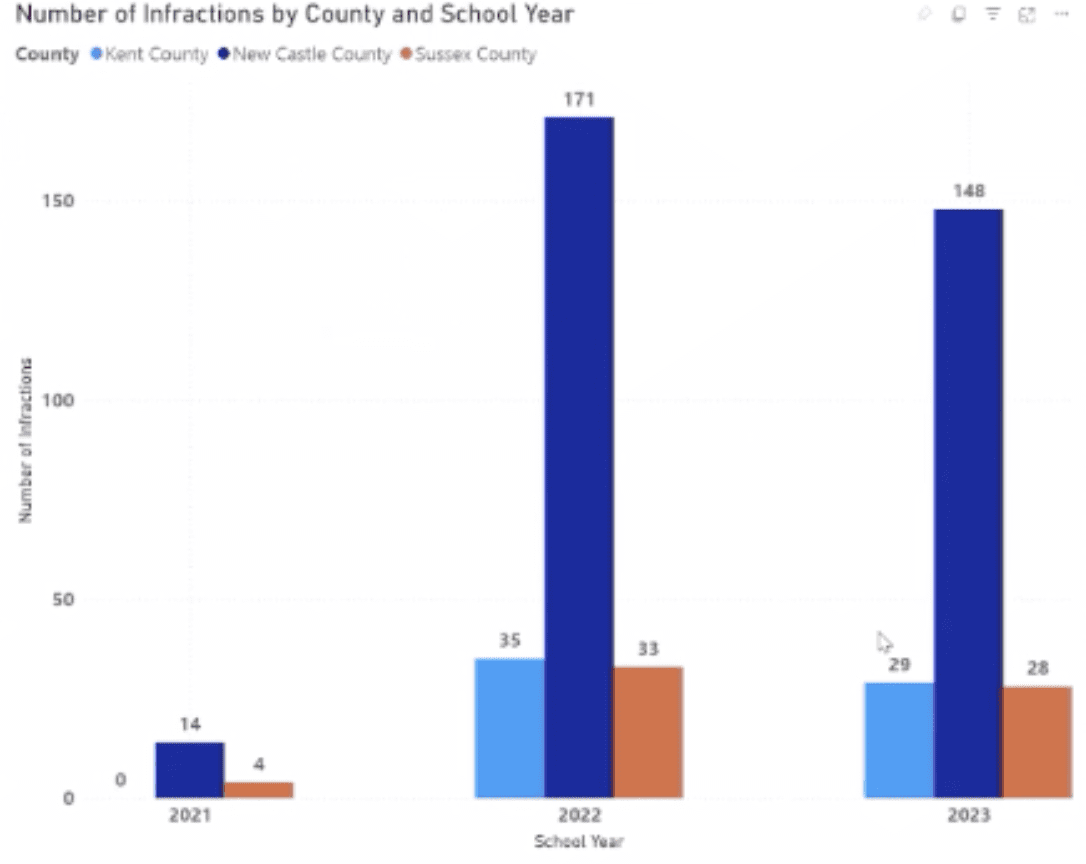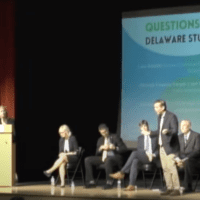

The task force is meant to examine and make recommendations in part on how to ensure positive student behavior in schools.
The state task force dedicated to evaluating the ongoing problems with student behavior and school climate acknowledges that there is a real problem in Delaware schools.
The 24-member Student Behavior and School Climate Task Force, made of government and educational officials as well as school behavioral specialists and resource officers, got its first taste of official suspension data Monday night.
Several members said schools need more money for specialists than they now are getting.
Statewide data from 2021-2023 shows that the most common suspension is out of school with no service requirements (33,000 cases, 47.53%), followed by in-school suspensions (29,000, 42.1%) out-of-school with service requirements (5,000, 6.52%) and in-school suspensions with interventions (2,000, 2.8%).
That number is total disciplinary referrals, but changes depending on the incident.
For example, 79% of students were disciplined with out-of-school suspensions without service requirements for fighting.
For skipping class, 72% of students received in-school suspensions.
The overwhelming majority of infractions also took place in schools within New Castle County.
The task force recognized that certain groups of students, such as Black students and students with disabilities, are punished at a disproportionate rate compared to White traditionally learning students.
For a couple years now, parents have flooded school board meetings to tell disheartening stories of their child being bullied or a victim of bad behavior by classmates.
In Nov. 2023, for example, one mom said that students in the Milford School District hold a “fight club” in the school, and videos are circulated through social media.
RELATED: Milford parents voice concern about school safety, bullying
The task force’s job is to study the needs and options of students and educators to improve student behavior and school climate policies.
Its end goal is to recommend a course of legislative, regulatory and operational action that considers or addresses:
- The causes of student behavior issues, including the connection between student behavior and the social determinants of learning.
- The impact of student behavior issues on student learning, including for the individual student with behavior issues as well as for their classmates.
- The impact of student behavior issues on educators’ job satisfaction and retention.
- The effectiveness of current school discipline policies and initiatives in preventing and addressing student behavior issues, including restorative practices as adopted in Delaware and other jurisdictions.
- Adoption of data-driven, developmentally-appropriate school discipline policies and interventions to improve school climate in Delaware schools.
- Effective school policies related to engaging families in the process of addressing student behavior issues.
Dorrell Green, superintendent of Red Clay Consolidated School District, said out-of-school suspensions aren’t ideal. They often take children out of a learning environment and leave them in a home environment that might be the foundation for the bad behavior, he said.
But, he said, if a child is disrupting the learning of others, they might have to be removed from the classroom.
State Sen. Eric Buckson, R-Dover, said the state often treats everything as a new intervention where it doesn’t have to be.
Buckson said he believes a lot of children are misdiagnosed with behavioral disorders when they don’t necessarily have them.
While some of the members want to see more restorative practices and professional development for teachers to appropriately respond to misbehavior, some had a more simple approach.
Donna Husten, who teaches in the Indian River School District, said the state doesn’t allocate enough funding resources to behavioral interventionists – those that could help and ease the burden of teachers to play the role of disciplinarian.
Other educators added that it’s difficult on teachers, who already have enough on their plate, to be tied into behavioral responsibilities.
Senate Education Committee Chair Laura Sturgeon, D-Hockessin, agreed that more funding for these positions would help.
The task force did not take any action. Its next meeting is yet to be scheduled but will likely be in May.
It is expected to submit a formal report to the General Assembly by Nov. 1.


Raised in Doylestown, Pennsylvania, Jarek earned a B.A. in journalism and a B.A. in political science from Temple University in 2021. After running CNN’s Michael Smerconish’s YouTube channel, Jarek became a reporter for the Bucks County Herald before joining Delaware LIVE News.
Jarek can be reached by email at [email protected] or by phone at (215) 450-9982. Follow him on Twitter @jarekrutz and on LinkedIn
Share this Post









